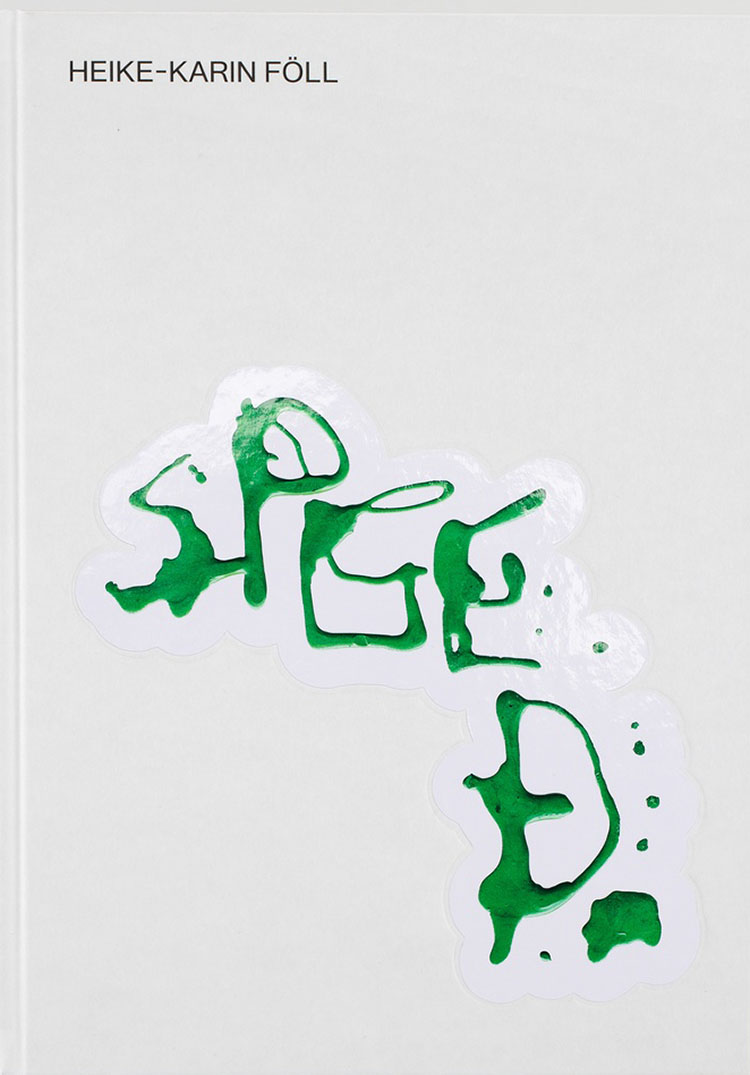
SPEED
Heike-Karin Föll’s foundational collection of works on paper refuses, in its totality, to be pinned down. SPEED exists in a sequence of autonomy, embracing simultaneity and resisting typical chronology or logic. A resource library for Foll’s more well known painted works, each page also stands on its own. The “writing” and “rewriting” of these pages is a rejection by the artist to rest on what has already been accomplished, and insists on constantly renewing modes of expression amidst the routine and expected.
SPEED takes the form of visual index, a micro structure of narrative, through the space of the page. Blank spaces (components of in-betweens and not-yets), textual elements, found images, and abstract icons are assembled from a daily stream of computational information and graphics to bring us into the temporal now. The pages slip from medium to medium, relying on short forms and small units as the bases for recontextualisation and variation. Montez Press is honoured to be able to offer an opening for these vast and untamable works by Heike-Karin Föll.
Heike-Karin Föll is painter who is currently based in Berlin. She works with the materiality and mechanics of painting and language, treating textuality as equally a vehicle of content, a visual motif and a material form.
Language: English







